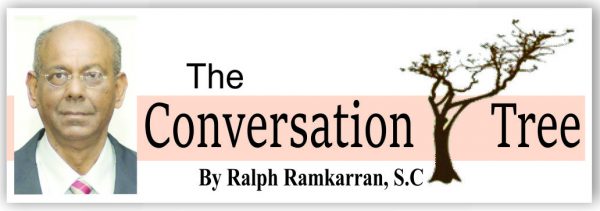
The election results of 2011 are well known. The PPP/C was not returned with an absolute majority for the first time since 1992, but with a plurality of 32 votes over 33 for the combined Opposition. With unimaginative inflexibility, the minority PPP/C Government, true to the culture of securing dominance, did not even discuss internally the issue of a coalition arrangement with one or both of the opposition parties. It was entitled to form a minority government and did so. As expected with minority governments everywhere in the world, but perhaps not by the PPP/C, the Government fell after three years of political turmoil.
The PPP did not then, in 2011, dust off its proposals of “Building Trust and Confidence,” which Opposition Leader Bharrat Jagdeo offered last week as evidence of the PPP’s support for shared governance. The reality is that the proposals made in February, 2003, against the background of increasing pressures from the international community and local opinion after the 2001 elections, were designed to acknowledge the PPP’s interest in closer collaboration with the PNCR but to postpone it indefinitely, until trust and confidence could be created, which could never happen between the PPP and PNC. It said: “The PPP/C proposes the implementation of all the constitutional reforms as an immediate measure to building trust and to further enhance inclusive governance. In this regard, the parties will be required to collaborate on: the appointment of the…Commissions…The PPP/C will expand on these efforts by encouraging broader co-operation by all forces in the society involved in public affairs but particularly the political parties…In an environment created by deepening trust and confidence, further arrangements for inclusive governance can result after consultation with our constituents and the electorate.”
By design, the proposals in “Building Trust and Confidence” were never invoked, even after a PPP/C minority Government was elected in 2011. Why should anyone now believe that the PPP has suddenly become interested in sharing the government, as indicated by the Opposition Leader? Our history shows that it is only when parties are in opposition that they promise shared governance. As soon as they attain power, those promises are promptly forgotten. The PPP promised shared governance in 1991 and 2003 (then in government but having faced intense opposition since the elections of 2001). The promises were never kept. The APNU+AFC promised it in 2015. This promise was never kept. What Assistant Professor Mars wrote in 2011 is understood by political parties, but disingenuously exploited. The promises are made but derailed by the exigencies of ethno-political dominance.
As has happened in the past, in times of political stress, as at present, the demands for shared governance or inclusive governance increases. The letter columns of the newspapers over the past few weeks attest to this. Even former Prime Minister Hamilton Green has proposed shared governance between the two parties. Mr. Green probably understands that the political landscape has now changed and with uncertainties about the outcome of the elections, who knows what 2019 will bring forth? Hence the increasingly prevalent talk of shared governance. Also, the political necessity of some form of enhanced political collaboration has seeped into the consciousness of the popular imagination as a potential way forward for Guyana. Although this popular sentiment has always been deliberately frustrated by the main parties, the desire endures among the people who, though swayed by the interests of ethnicity, remain supportive of and responsive to efforts to discard its corrosive influences.
Political parties are mushrooming, as is the custom when elections are close. The sentiments of many Guyanese are expressed in the adopted acronym of the newest political party, “FED-UP,” formed by three Berbice lawyers, and named “The Federal United Party.” The Liberal and Justice Party and A New and United Guyana have already been announced. If these parties together deprive the main parties of enough votes, the results and developments thereafter would be interesting.





